Nappy bags are the ultimate black hole.
Odd socks, muslins (clean and used!) and a forgotten bottle of vitamin D drops.
That pretty much sums up mine.
So most of us have the vitamin D in the nappy bag, stuffed down the side of the changing table or safety in the medicine cabinet, but why is it so important? And how can we remember to give it? Let’s look at how and why to give your baby vitamin D.
It’s worth knowing that recommendations on vitamin D supplementation differ from country to country. As I’m an Irish registered dietitian, I’m talking in this blog about Irish recommendations. You’ll need to check your local recommendations if you’re in another country.
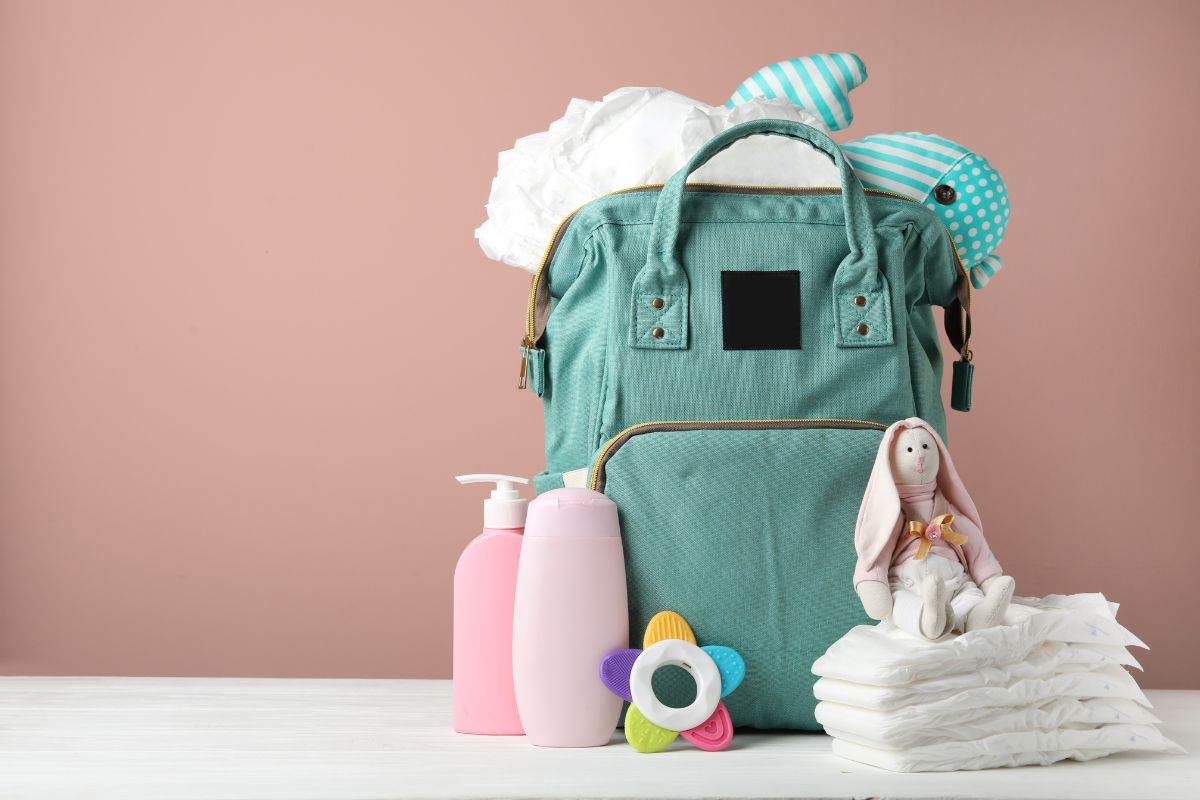
Vitamin D: Where do you keep yours?!
Vitamin D: What is it?
Vitamin D is a very important vitamin during rapid growth and development stages. D-vitamins can be classified into two groups (vitamin D3 and vitamin D2).
The Benefits of Vitamin D for My Child
- Absorbs and regulates calcium and phosphate to develop healthy teeth and bones.
- Boosts the immune system to improve immunity during infancy and childhood.
- It helps the regulation of insulin levels
- Improves lung and cardiovascular health
- It helps to manage obesity.
- It may help prevent diabetes, heart disease, rheumatoid arthritis, MS and certain cancers.
Understanding how vitamin D is measured
- Vitamin D is measured in either milligrams or International Units.
- A microgram is 1,000 times smaller than a milligram (mg). The word microgram is sometimes written with the Greek symbol μ followed by the letter g (μg).
- Vitamin D is sometimes expressed as International Units (IU). One microgram of vitamin D is equal to 40 IU. So five micrograms of vitamin D is equal to 200 IU.
Giving your baby vitamin D?
It’s important to ensure that your baby is getting enough vitamin D.
- breastfed
- taking less than 300mls or ten fluid oz (ounces) of infant formula a day
All breastfed babies should continue to get a vitamin D supplement after birth, even if you took vitamin D during pregnancy or while breastfeeding.

Breastfed babies need vitamin D drops daily
Do formula-fed babies need vitamin D drops
You don’t need to give your baby a vitamin D supplement if they drink more than 300mls or ten fluid oz (ounces) of infant formula daily.
This is because there’s been an increase in the amount of vitamin D added to infant formula. This is due to a change in EU law as of February 2020. No one formula is better than another. All formula companies must comply with these regulations.
What is the BEST vitamin D supplement to buy
A vitamin D supplement can be given from birth in drops or liquid. You can buy a vitamin D supplement for your babies in your pharmacy or most supermarkets.
While there is no one BEST brand, you need to make sure of the following:
- Vitamin D3 (cholecalciferol) is the preferred form of vitamin D for infants
- The supplement you are choosing contains 5mcg of vitamin D
- You’re using the correct number of drops
- It’s in liquid form. Chewable or tablet-type supplements are unsuitable for young children.
- It contains only vitamin D unless you’ve been advised otherwise by a healthcare professional
You can consult a pharmacist or healthcare professional if you need more help choosing a daily vitamin D supplement.
How to give your baby vitamin D drops?
Check the product label for the number of drops or liquid you need to give your baby.
Place the drop (or drops) directly into your baby’s mouth. Try to do this when your baby is relaxed, such as during a bath or cuddling. Aim for the inside of the cheek, not the back of your baby’s throat.
What if I forget vitamin D drops for baby?
If you forget to give your baby their daily Vitamin D3, start the next day again but do not give more than one dose daily.

You’re only human-it’s easy to forget to give vitamin D
Three tricks for remembering to give it!
- Offer it at the same time every day. Those times might coincide with your baby’s first nappy change, getting dressed time or bedtime routine.
- Set the alarm in your home, smartphone, or watch to remind you when to give it.
- Keep it somewhere you access many times a day. I keep things like this in my cutlery drawer because I drink multiple cups of tea during the day, so every time I get a teaspoon out, I’m reminded. Turn the bottle around after you give it, and then you’ll know if you’ve already given it that day.
Can you give too much vitamin D
Yes, you can. Too much vitamin D is harmful.
Taking too many vitamin D supplements over a long period of time can cause too much calcium to build up in the body. This can weaken the bones and damage the kidneys and heart.
- Babies under 12 months shouldn’t have more than 25 micrograms (1000IU) a day.
- Children aged 1-10 years shouldn’t have more than 50 micrograms (2000IU) a day.
Vitamin D supplements for vegan babies and children
Vitamin D2 is animal-free. Vitamin D3 usually comes from sheep’s wool, but some supplements contain vitamin D3 from a vegan-friendly source called lichen. Ask a registered dietitian to help plan a balanced vegan diet for your baby.
Vitamin D Deficiency-What happens if My Child Doesn’t get enough?
Vitamin D deficiency can have many negative impacts on a child’s life. It can also lead to long-term consequences. Low vitamin D levels can cause weak/brittle bones that can break easily. Severe vitamin D deficiency can cause rickets.
Rickets: The Signs and Symptoms
Rickets is a bone disorder that is caused by low levels of vitamin D. The symptoms:
- Weak/soft bones
- Stunted growth
- Bowed legs
- Bone pain
- Frequent bone fractures
- The curvature of the spine
- Bone deformities
- Poor immune system
Due to these painful symptoms, ensuring that our children get enough vitamin D, either through sun exposure or through their diet, is very important to avoid health complications and on going medical care.
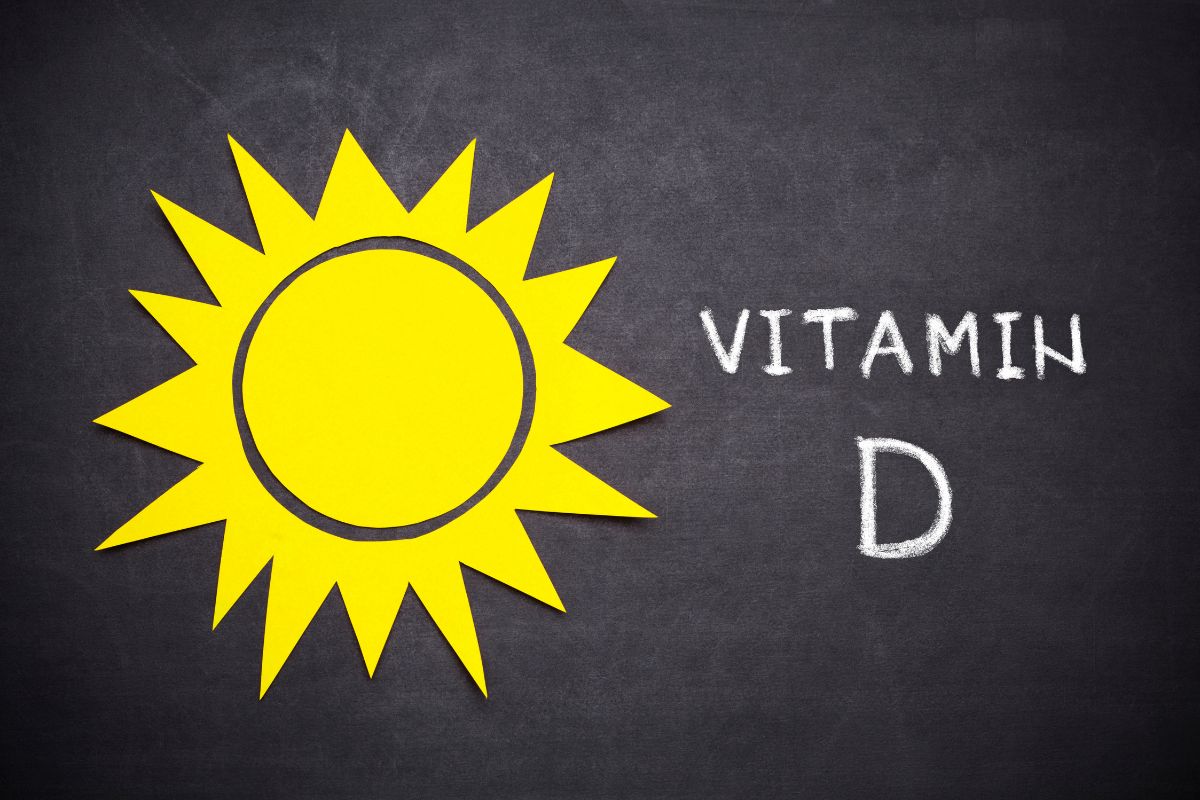
Vitamin D: The ‘Sunshine’ Vitamin
Vitamin D is often known as the ‘Sunshine vitamin ‘ because our skin produces vitamin D naturally when exposed to sunlight.
Most children can get enough vitamin D from just 10-15 minutes of direct exposure to sunlight a day.
However, you must ensure your child isn’t spending too much time in the sun, which can lead to skin damage. In countries such as Ireland, exposure to sunlight can be difficult, especially in the colder seasons, due to the country’s geographical location.
Babies under 12 months have very sensitive skin and should not be in direct sunlight.
Food Sources Rich in Vitamin D for my Child
Vitamin D is found in only a small number of foods.
Sources include:
- oily fish – such as salmon, sardines, herring and mackerel
- red meat
- egg yolks
- fortified foods – such as some fat spreads, breakfast cereals and fortified milk
An excellent food source of vitamin D is fish such as salmon, herring, sardines, and canned fish. Luckily, there is a wide range of vitamin D fortified foods such as milk, milk alternatives, dairy products, and breakfast cereals. These are alternatives for kids who dislike fish or vegetarian/vegan diets. You can buy vitamin D-fortified foods and drinks at almost any supermarket. Including these vitamin D-enriched foods as a part of a healthy, balanced diet is a great approach to ensure your child is hitting their daily vitamin D targets.
Does Breast Milk have Enough Vitamin D for My Child?
Although breast milk is an excellent source of nutrients, it is still a very poor source of vitamin D for infants. Therefore, breastfed babies are still at risk of developing vitamin D deficiency. This is why it is recommended that breastfed babies take a supplement of liquid vitamin D.
How much vitamin D does my toddler need?
Children aged 1-4 need a vitamin D supplement daily over the winter months.
Give 5 micrograms (200IU) vitamin D from Halloween (October 31st) to St Patrick’s Day (March 17th) every year.
Young children don’t get enough vitamin D in winter. They need vitamin D for healthy bones and teeth all year round.
Research shows that most young children in Ireland get enough vitamin D in the summer. They get it through their diet and sunlight.
Vitamin D: The Bottom Line
The message is that our babies and young children need vitamin D. Especially in Ireland, vitamin D deficiency is already a huge issue because of the climate and poor food intake. It’s important to act now and change this.
So, if your baby is breastfed or no longer drinking formula, don’t just have the vitamin D in the nappy bag-use it!

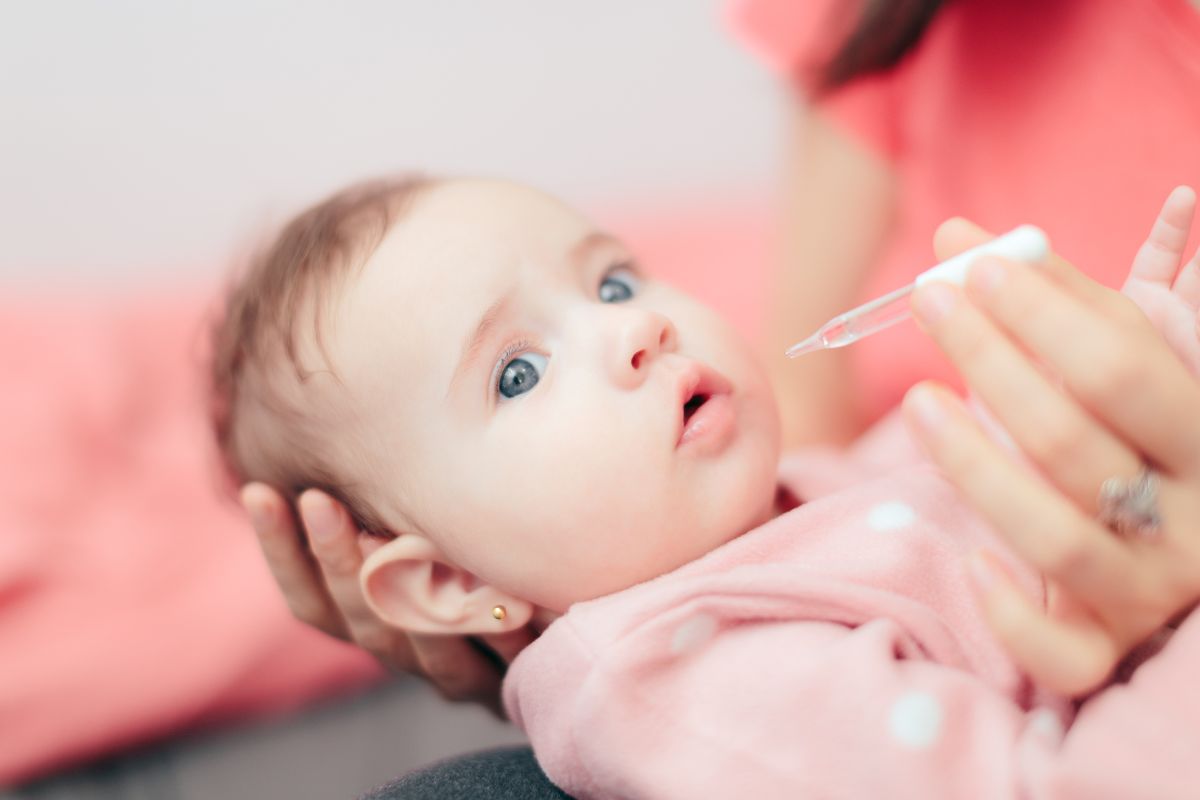

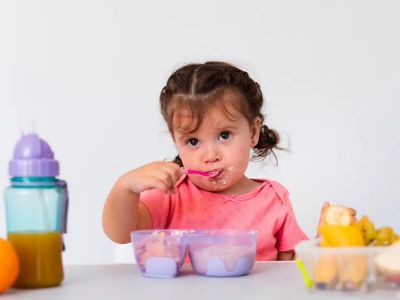
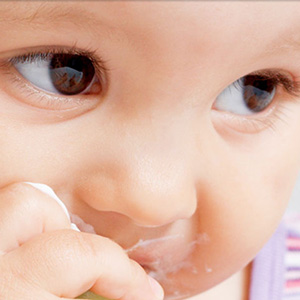


0 Comments